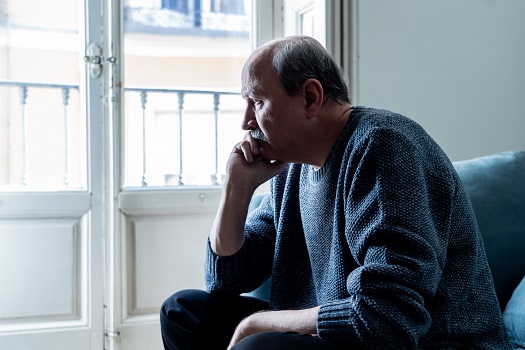Mood changes in senior women are common, but they can be challenging to diagnose. They may simply be the result of an infection, or they may be associated with medical disorders or cognitive deficits. Here are four causes of mood changes in senior women.
1. Low Estrogen Production
Senior women in menopause have low estrogen levels, which can cause hot flashes, insomnia, itchiness, and mood swings. If your loved one is postmenopausal and experiences mood changes, make an appointment with the gynecologist, who may recommend hormone replacement therapy to raise estrogen levels. Once your loved one’s hormones have been balanced, her mood may brighten. If she has been treated for breast cancer or has a strong family history of breast cancer, hormone replacement therapy may not be an option. Research suggests hormone treatments with estrogen may fuel certain gynecological cancers, including those of the breast and uterus.
Helping an aging adult manage mood changes can be exhausting, so it’s important for caregivers to make time to attend to their own wellbeing. Families who find it difficult to care for their aging loved ones without assistance can benefit greatly from professional respite care. Anchorage, AK, family caregivers who need a break from their caregiving duties can turn to Home Care Assistance. Using our proprietary Balanced Care Method, our respite caregivers can encourage your loved one to eat well, exercise regularly, get plenty of mental and social stimulation, and focus on other lifestyle factors that promote longevity.
2. Bereavement
If your loved one recently lost her spouse, she may feel lonely and depressed. The loss of a spouse may also cause anxiety over the loss of companionship and how to keep up with home maintenance. If your parent becomes withdrawn, frequently cries, stops eating, or loses weight, take her to the doctor for an examination and, if needed, consult a mental health professional for a psychological evaluation and treatment. In addition to psychological treatment, your loved one may benefit from a pet, if she is able to care for one. Pets reduce anxiety and depression and provide much-needed companionship for seniors who are grieving after losing their spouses. Cuddling a dog or cat can raise levels of endorphins, dopamine, and serotonin, which are often referred to as “feel-good” chemicals.
3. Autoimmune Disorders
Men can develop autoimmune conditions, but they’re much more common in females. Certain autoimmune disorders, such as hypothyroidism or hyperthyroidism, can cause mood changes, including depression and anxiety. Thyroid hormone replacement medications for hypothyroidism can lift mood, and beta blockers for hyperthyroidism can reduce anxiety associated with the symptoms of an overactive thyroid, which may include heart palpitations, a fast pulse, profuse sweating, diarrhea, and shaking. Once normal thyroid function has been established, your loved one may enjoy a more stable mood.
Trained caregivers can be a wonderful source of information and support when it comes to common health conditions in seniors. Not every senior has the same care needs, which means they don’t all need the same type of home care services. Anchorage families can rely on Home Care Assistance to provide individualized care plans to meet your elderly loved one’s unique care needs. Our holistic Balanced Care Method was designed to help seniors focus on healthy lifestyle habits such as eating nutritious foods, exercising regularly, and maintaining strong social ties, and our Cognitive Therapeutics Method offers mentally stimulating activities that can stave off cognitive decline and delay the onset of dementia.
4. Urinary Tract Infections
Senior women are prone to urinary tract infections because dwindling hormone levels can cause bladder prolapse. Urinary tract infections in senior women can lead to fever, confusion, pain, and mood changes. If your loved one experiences burning pain when urinating, blood in the urine, changes in urinary output, fever, chills, or confusion, seek medical attention. The doctor can perform a urine test, and if an infection is present, antibiotics may be prescribed. Once the infection has cleared, your loved one’s mood may return to normal.
Professional caregivers with training and experience in senior health can be a wonderful source of information and encouragement for aging women who are experiencing mood changes. Maintaining a high quality of life can be challenging for some seniors, but professional caregivers can help them obtain this goal. Families can trust Anchorage senior home care experts to help their elderly loved ones focus on lifestyle choices that increase the chances of living a longer and healthier life. Rely on the professionals at Home Care Assistance to provide high-quality compassionate care for your loved one. Give us a call today at (907) 770-0907 to learn about our flexible in-home care plans.
